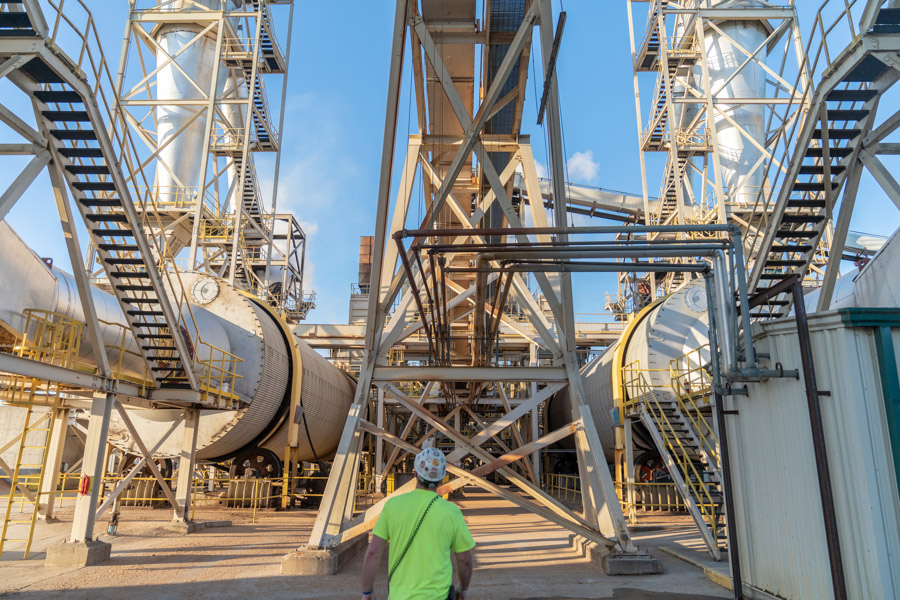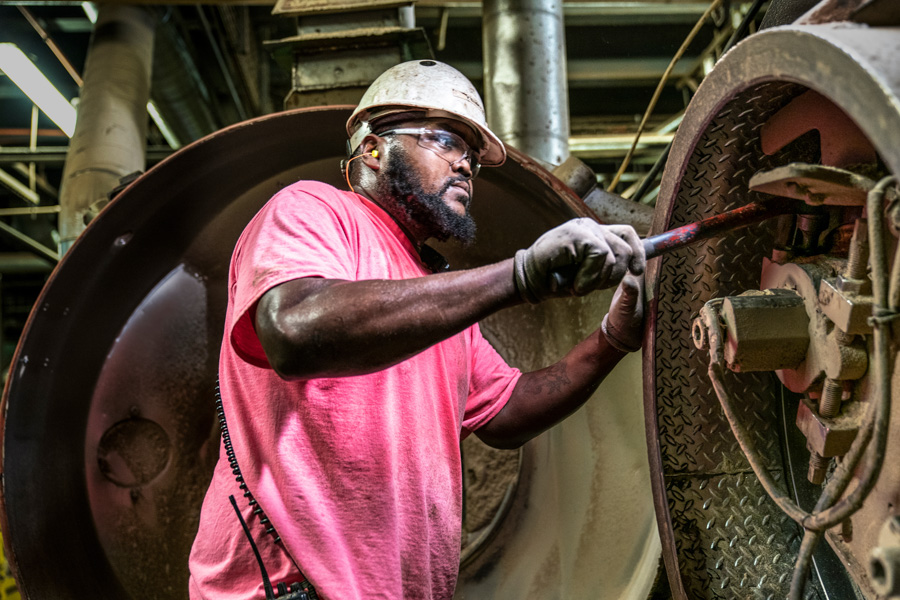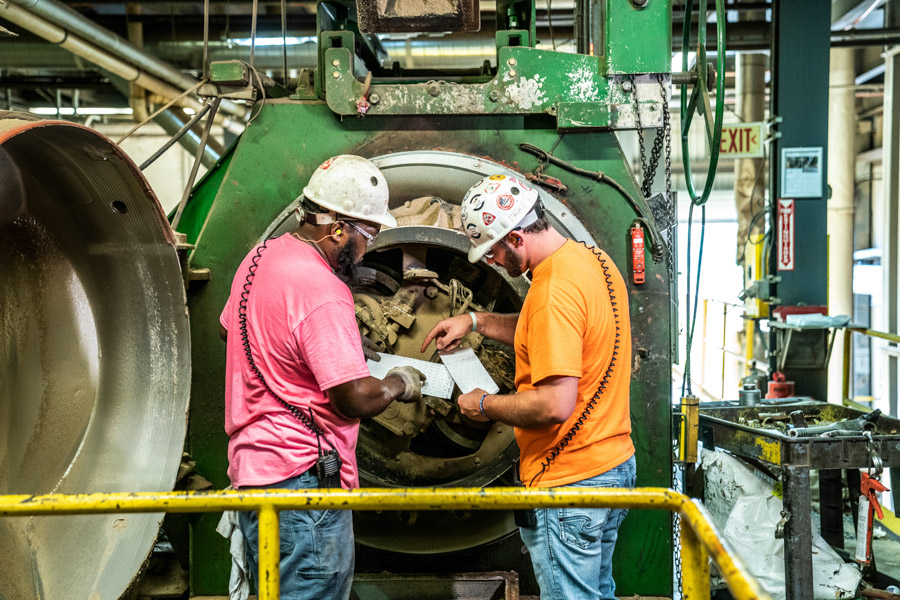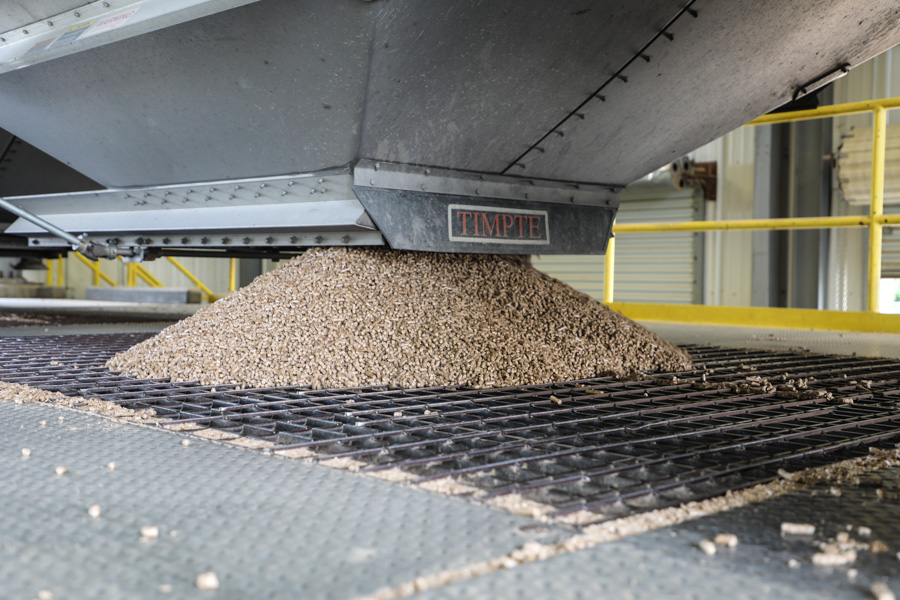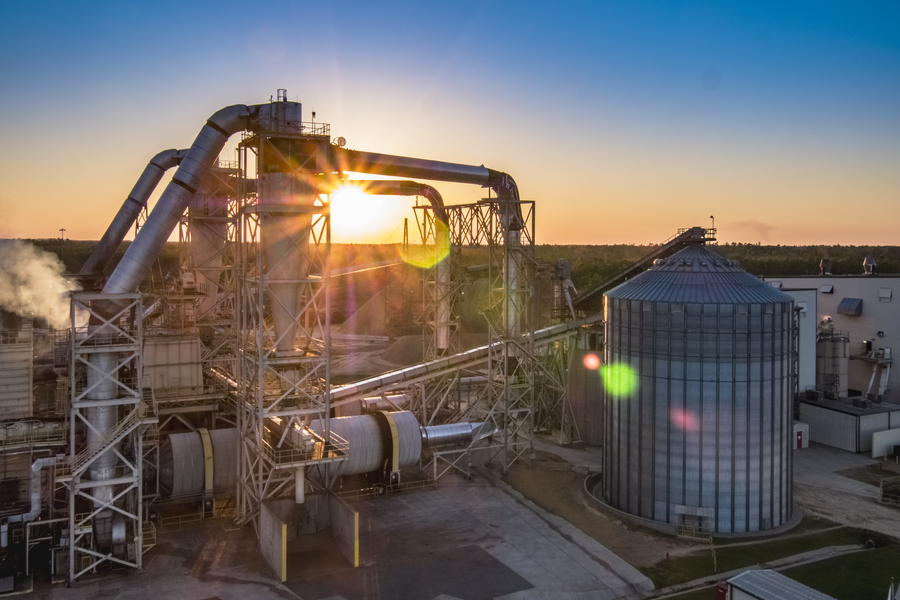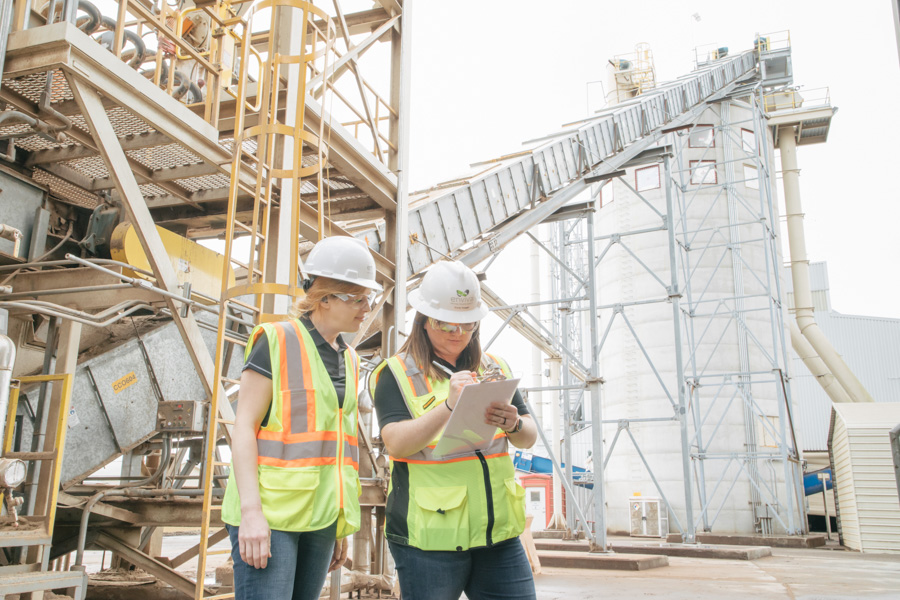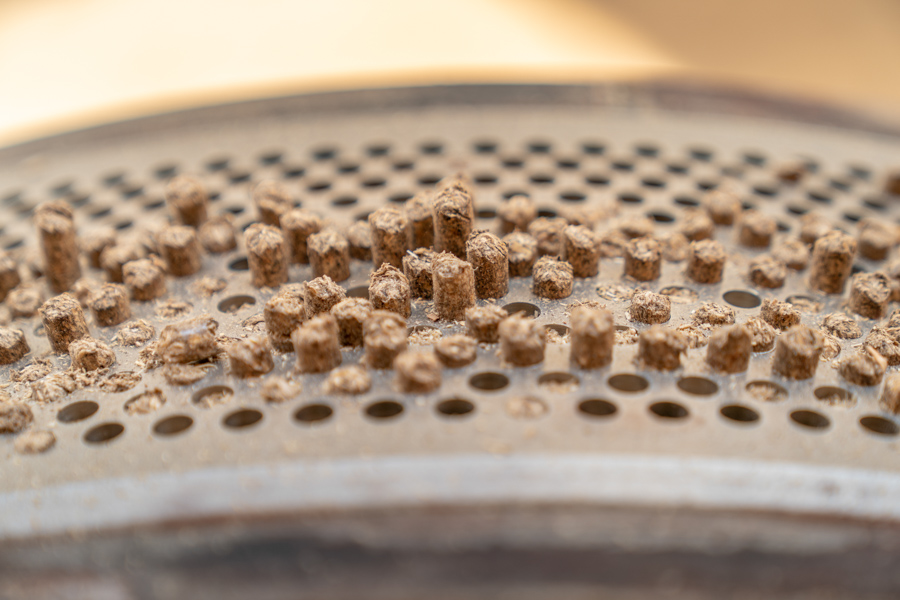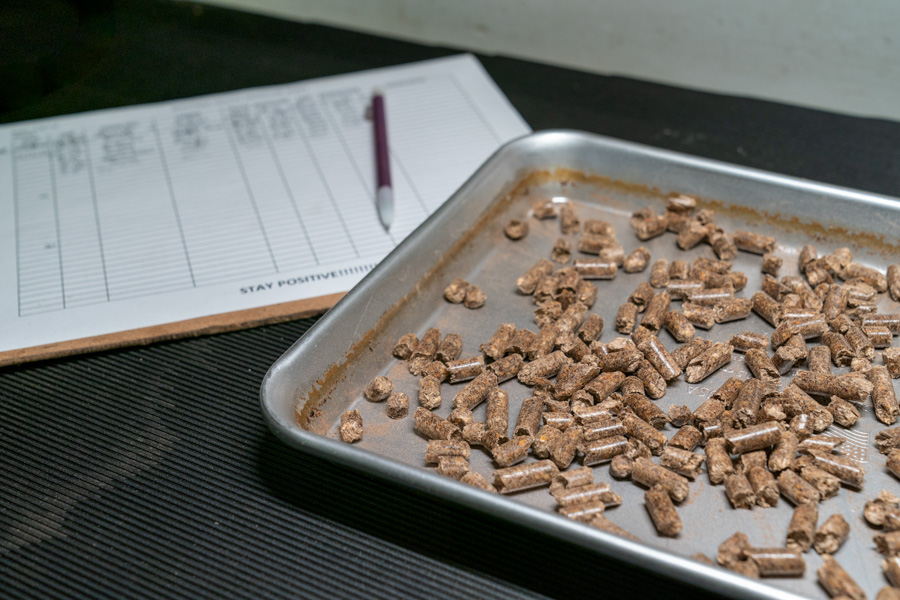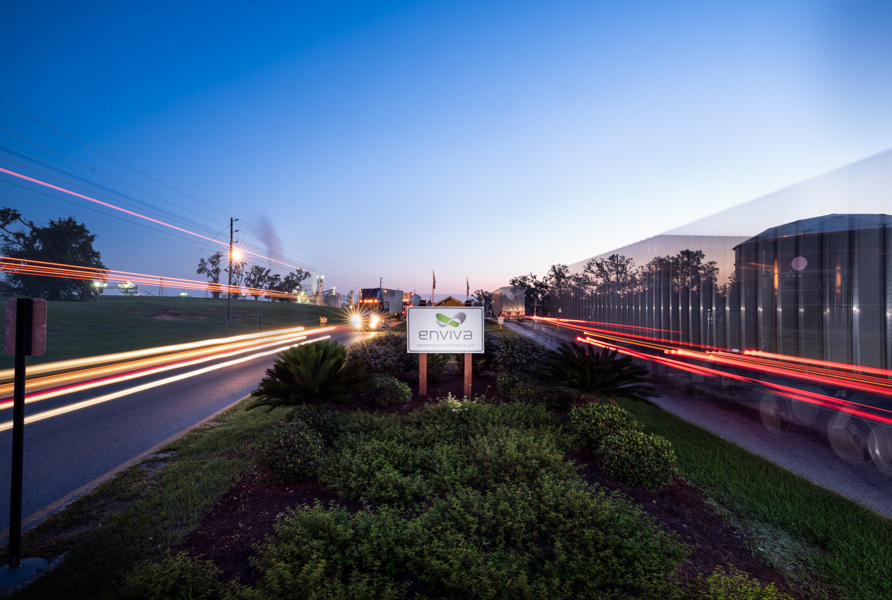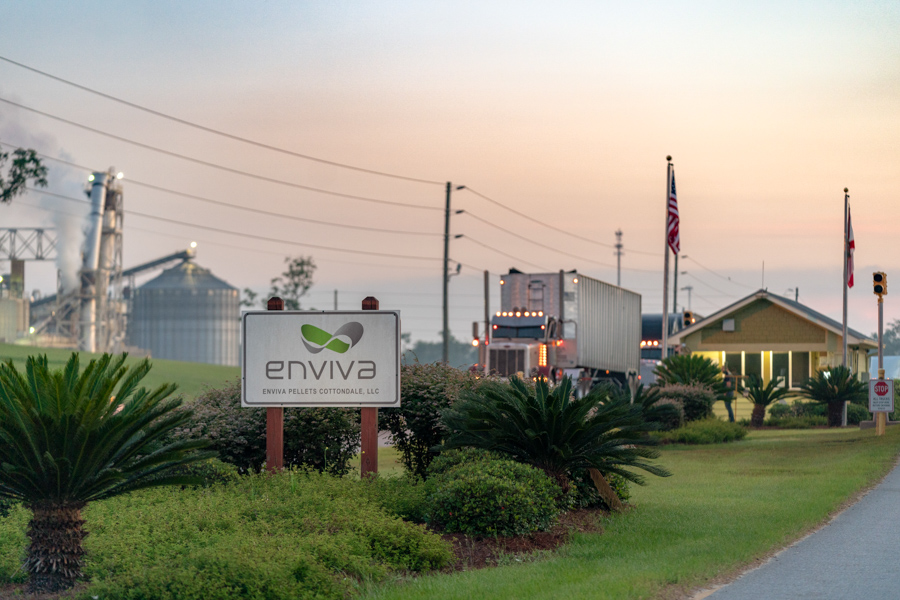Interview with Thomas Meth, Executive Vice President of Sales and Marketing at Enviva Partners
The global market of wood pellets is growing at an average rate of 13% per annum, or +3.3 million metric tons a year (hereinafter all numbers are quoted in metric tons – Note by WhatWood), while the growth rate of international pellets trade has been 16% per annum over the past seven years. As of the end of 2019, wood pellets production over the world exceeded 40 million tons (based on official estimates and excluding China – Note by WhatWood). North America is the global leader of wood pellets production and supply to the international market. In 2019, the USA produced 8.6 million tons of pellets (+15.1% YoY); Canada, 3 million tons.
A major player in the global production chain of wood pellet supplies is Enviva, an U.S. company holding almost 50% of the US market by production volume. Enviva was founded in 2004 and made IPO on the New York Stock Exchange (NYSE: EVA) in 2015; in June 2020, the company’s market cap reached $1.4 billion. In 2019, revenue of Enviva Partners was $684 million. Long-term contracts signed by the company carry a weighted average of 13.9 years and $19.2 billion of wood pellet sales volume in monetary terms. Enviva Partners owns 10 wood pellet plants in the USA; the company continues to expand its production capacity vigorously.
Enviva Partners’ success story is a unique and interesting case of a company that managed to build the world’s largest business on renewable wood-derived bioenergy – in the industrial wood pellets market. WhatWood Timber Industry Analytics Agency addressed a few questions to Thomas Meth, company’s co-founder and Executive Vice President of Sales and Marketing
WhatWood: Mr. Meth, thank you for agreeing to be interviewed. Please tell us briefly about Enviva Partners.
Mr. Meth: Enviva is the world’s largest producer of sustainable wood pellets, owning and operating plants in the U.S. Southeast that produce approximately 4.1 million tons of wood pellets per year. The pellets are primarily exported to power and heat generators in the United Kingdom, Europe, the Caribbean and Japan, including many previously fueled by coal.
Our purpose as a business is to displace coal, grow more trees and fight climate change. Enviva plays a pertinent and critical role in promoting sustainable forest management and forest growth, creating a strong market for second tier wood in the U.S. and addressing climate change globally. As a renewable energy company, Enviva helps the world’s energy producers reduce carbon emissions by more than 85% on a lifecycle basis using sustainable bioenergy.
WhatWood: Based on the latest investment announcements and M&A activity, Enviva begins to focus on the Asian wood pellet market. Is the European market becoming unattractive for long-term contracts?
Mr. Meth: Quite the opposite. Our primary markets are currently in the UK and Europe. Global renewable energy markets vary by region depending on source, price and availability. At Enviva, we will always explore opportunities to expand our operations and provide renewable solutions to our customers, including the U.S.
As I have already noted, currently, Enviva exports its sustainably sourced wood pellets to power and heat generators primarily in the United Kingdom, Europe, the Caribbean and Japan, enabling them to replace coal with renewable fuel and to reduce their lifetime carbon footprint by more than 85%.
WhatWood: By the way, you’ve mentioned the USA. Does the company sell pellets in the domestic North American market?
Mr. Meth: Currently, we do not sell in the United States and our business is not contingent on U.S. sales with a such a wide scale of opportunities available across the U.K., E.U. and Japan.
Looking down the road, we see great potential in the development of U.S. biorefineries to support industries looking to decarbonize steam generation. Additionally, we foresee biomass playing a complementary role to wind and solar in decarbonizing heat applications for industrial manufacturing plants that operate around the clock and in need of dispatchable, renewable low-carbon fuel.
WhatWood: Why are sawmills interested in supplying raw materials for wood pellet production to your company instead of producing pellets on their sites? In Russia, for example, sawmills usually produce pellets themselves.
Mr. Meth: The wood products market is very different in the U.S. compared to Russia. Without energy markets, treetops, limbs, thinnings, residues, and low-value wood are often left to decompose in the forest without any added value. At Enviva, we work to make sure that useable wood material doesn’t go to waste. Enviva creates a market for low-value wood and incentivizes landowners to continue to grow more trees instead of converting their land to non-forest use, such as agriculture or development.
As it pertains to sawmills, we partner with local sawmills to purchase as much as is available in our markets and ensure that none of this product goes to waste in the regions where we operate. There is, however, a finite supply, and we do not rely solely on residuals.
WhatWood: Enviva Partners has recently announced that it has agreed to purchase a wood pellet plant located in Waycross with a production capacity of approximately 800,000 tons per year. Which strategic model is more attractive: greenfield investments (copy and build) or acquisition of operating wood pellet plants?
Mr. Meth: Enviva is always open to exploring new opportunities to expand our operations and provide renewable solutions to our customers. Each decision is evaluated on a case-by-case basis.
As for the transaction you are asking about, in this specific case on June 18, 2020, Enviva Partners, LP (the “Partnership”) announced that it had agreed to purchase a wood pellet production plant in Waycross, Georgia (the “Waycross plant”) with associated export terminal capacity in Savannah, Georgia from Innogy SE (the “Georgia Biomass Acquisition”) and a wood pellet production plant in Greenwood, South Carolina (the “Greenwood plant”) from our sponsor (the “Greenwood Acquisition” and, together, the “Acquisitions”).
In connection with the Greenwood acquisition, which closed on July 1, 2020, our sponsor assigned to Enviva Partners five firm, long-term, take-or-pay off-take contracts with creditworthy Japanese counterparties, aggregate annual deliveries of 1.4 million MTPY, and a total revenue backlog of $5.3 billion to Enviva Partners.
An Enviva associate looking up at an industrial-sized wood chip dryer at Enviva’s Cottondale, FL plant.
An Enviva associate tuning an industrial-sized wood pellet mill.
Two Enviva associates conducting a thorough equipment check of an industrial-sized wood pellet mill.
An up-close view of Enviva’s truck load out process at Enviva’s Port in Chesapeake, located in Virginia.
Wholly owned by Enviva Partners, LP, this port serves as the shipment point for sustainably sourced wood pellets manufactured at Enviva’s mid-Atlantic facilities, including the Ahoskie (NC), Northampton (NC), and Southampton (VA) plants.
Exterior shot of Enviva’s Cottondale, FL wood pellet production plant with an annual production capacity of 730,000 metric tons per year.
The sustainably sourced wood pellets produced at the Cottondale plant carry ENplus quality certification, which means they can be used by both industrial and residential customers.
 Timber industry research & analytics
Timber industry research & analytics 
